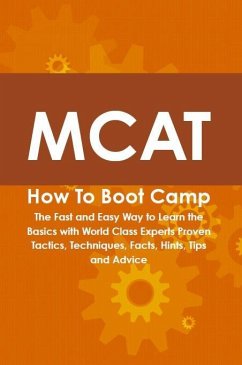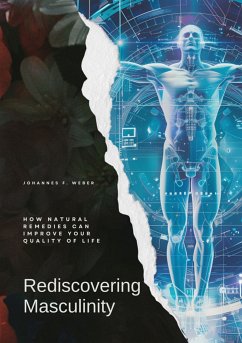
Private Sex Advice to Women (eBook, ePUB)
For Young Wives and those who Expect to be Married.
Versandkostenfrei!
Sofort per Download lieferbar
2,49 €
inkl. MwSt.
Weitere Ausgaben:

PAYBACK Punkte
0 °P sammeln!
In this book the writer thereof seeks to convey to women-particularly to young wives and women expecting to be married-certain important facts of knowledge, certain necessary information, which all such women should possess, but which few are given the opportunity to acquire.It would seem to require no argument to convince a rational individual that before a woman is capable of intelligent motherhood she should be made acquainted with the physiological processes which are involved in the sexual functions leading to the state of motherhood; but we are confronted by the fact that few young women...
In this book the writer thereof seeks to convey to women-particularly to young wives and women expecting to be married-certain important facts of knowledge, certain necessary information, which all such women should possess, but which few are given the opportunity to acquire.
It would seem to require no argument to convince a rational individual that before a woman is capable of intelligent motherhood she should be made acquainted with the physiological processes which are involved in the sexual functions leading to the state of motherhood; but we are confronted by the fact that few young women are given such instruction.
It is a strange thing that while even the ordinary school child is made acquainted with the physiological processes concerned with the processes of digestion, respiration, circulation, elimination, etc., and while such education is highly commended, yet at the same time not only are the young of both sexes reared as if there was no such thing as sexual functions in existence, but even full-grown adults are left to pick up their instruction on sexual subjects from chance sources-often polluted sources.
Even those about to enter into the important offices of matrimony and parenthood are permitted to assume those duties and responsibilities without intelligent and scientific information or knowledge being given them. What would we think of expecting a woman to cook, without previous experience and without even the most elementary instruction on the subject? What would we think of expecting any person to undertake any important task or duty without experience or instruction regarding the same? And yet we seem content to allow young women to enter into the important relationship of marriage, and to undertake the important office of motherhood, often in absolute ignorance of the physiological processes involved, and the physical laws governing the same.
All this absurd practice and custom results simply from the antiquated notion that it is "not nice" to speak or think of the subject of the sex functions. The subject has been considered "taboo" by our particular section of the human race since the Middle Ages, because the ascetic ideals of that dark period of human history brought forward a totally false and unnatural conception of sex as fundamentally impure. If the results were not so deplorable and often tragic, this condition of affairs would be a fit subject for laughter and scornful ridicule. But, alas! on the part of the thoughtful observer of this state of things there is rather great wonder and amazement accompanied by the feeling of deep sorrow.
It cannot be honestly denied that in our present age, and period of modern civilization, and particularly among the Anglo-Saxon branch of the race, the question of the sex functions is associated with impurity, at least so far as the popular mind is concerned. In previous civilizations the subject was accorded its proper place, and was discussed sanely and thoughtfully, without any sense of shame or impurity. The Middle Age ideals of celibacy and asceticism brought about the public conception of the human body as a thing impure-something to be modified, tortured, subdued and reviled; and a corresponding conception of sex as a vile, impure thing above which the pure in heart rose entirely and completely, and which those of a lesser spiritual ideal were permitted to indulge with a due sense of their degradation and weakness. It was considered a most worthy thing to lead an ascetic life with its accompaniment of disdain and punishment of the body. It was considered most pious and spiritual to forego the ordinary human relations of sex, marriage and parenthood. From these distorted conceptions naturally evolved the idea that sex, and all connected with it, was a subject unclean and impure in itself, and to be avoided in thought, conversation and writing. Not only the ordinary sex relations of human life were placed under this taboo, but also the phenomena of birth and parenthood. Not only did these incidents of life grow to be considered impure, but they became that which to many was still worse, that is to say, they became to be regarded as "not respectable."
It would seem to require no argument to convince a rational individual that before a woman is capable of intelligent motherhood she should be made acquainted with the physiological processes which are involved in the sexual functions leading to the state of motherhood; but we are confronted by the fact that few young women are given such instruction.
It is a strange thing that while even the ordinary school child is made acquainted with the physiological processes concerned with the processes of digestion, respiration, circulation, elimination, etc., and while such education is highly commended, yet at the same time not only are the young of both sexes reared as if there was no such thing as sexual functions in existence, but even full-grown adults are left to pick up their instruction on sexual subjects from chance sources-often polluted sources.
Even those about to enter into the important offices of matrimony and parenthood are permitted to assume those duties and responsibilities without intelligent and scientific information or knowledge being given them. What would we think of expecting a woman to cook, without previous experience and without even the most elementary instruction on the subject? What would we think of expecting any person to undertake any important task or duty without experience or instruction regarding the same? And yet we seem content to allow young women to enter into the important relationship of marriage, and to undertake the important office of motherhood, often in absolute ignorance of the physiological processes involved, and the physical laws governing the same.
All this absurd practice and custom results simply from the antiquated notion that it is "not nice" to speak or think of the subject of the sex functions. The subject has been considered "taboo" by our particular section of the human race since the Middle Ages, because the ascetic ideals of that dark period of human history brought forward a totally false and unnatural conception of sex as fundamentally impure. If the results were not so deplorable and often tragic, this condition of affairs would be a fit subject for laughter and scornful ridicule. But, alas! on the part of the thoughtful observer of this state of things there is rather great wonder and amazement accompanied by the feeling of deep sorrow.
It cannot be honestly denied that in our present age, and period of modern civilization, and particularly among the Anglo-Saxon branch of the race, the question of the sex functions is associated with impurity, at least so far as the popular mind is concerned. In previous civilizations the subject was accorded its proper place, and was discussed sanely and thoughtfully, without any sense of shame or impurity. The Middle Age ideals of celibacy and asceticism brought about the public conception of the human body as a thing impure-something to be modified, tortured, subdued and reviled; and a corresponding conception of sex as a vile, impure thing above which the pure in heart rose entirely and completely, and which those of a lesser spiritual ideal were permitted to indulge with a due sense of their degradation and weakness. It was considered a most worthy thing to lead an ascetic life with its accompaniment of disdain and punishment of the body. It was considered most pious and spiritual to forego the ordinary human relations of sex, marriage and parenthood. From these distorted conceptions naturally evolved the idea that sex, and all connected with it, was a subject unclean and impure in itself, and to be avoided in thought, conversation and writing. Not only the ordinary sex relations of human life were placed under this taboo, but also the phenomena of birth and parenthood. Not only did these incidents of life grow to be considered impure, but they became that which to many was still worse, that is to say, they became to be regarded as "not respectable."
Dieser Download kann aus rechtlichen Gründen nur mit Rechnungsadresse in A, B, BG, CY, CZ, D, DK, EW, E, FIN, F, GR, H, IRL, I, LT, L, LR, M, NL, PL, P, R, S, SLO, SK ausgeliefert werden.













